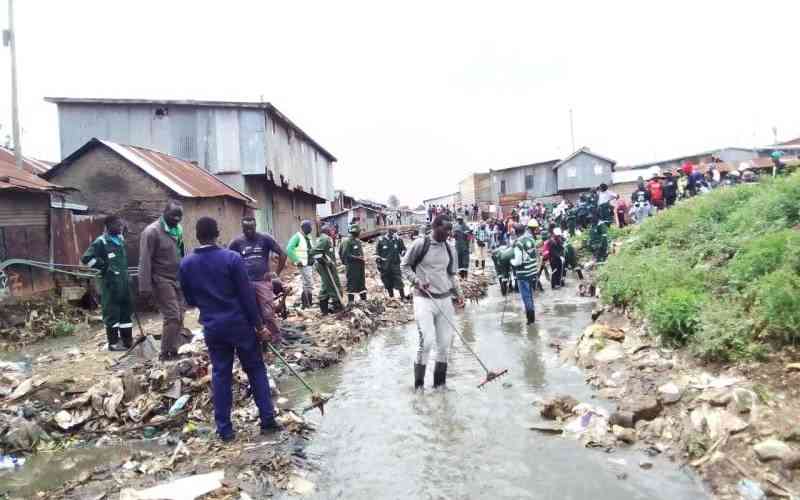Nairobi residents at work on eradicating slums, residents of Mukuru Fuata Nyayo slums are working on different ways of recycling waste products in their area. [File, Standard]
×
The Standard e-Paper
Fearless, Trusted News

An initiative aimed at improving sanitation and living conditions in Nairobi's informal settlements of Mathare and Mukuru has been launched.
Under the African Cities Research Consortium (ACRC), the initiative is part of its four action research projects that rely on local partners to implement interventions that address key urban challenges, particularly for marginalised communities.